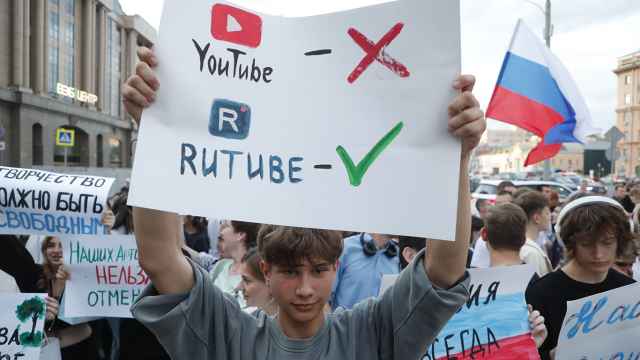President Vladimir Putin has signed amendments to an existing law that strengthens state control over the internet in a move the Kremlin claims is necessary to stop the spread of illegal content online.
The amendments, which come into force Nov. 1, forbid internet proxy services (VPNs), which help internet users gain access to websites that have been blocked by the government and surf the web anonymously.
The law will also require online messaging services to link users with their phone numbers and to block users engaged in the dissemination of “illegal information.”
On July 20, Leonid Levin, head of the State Duma’s committee for information policy, said: “there will be no fines or punishment for users,” but that messenger operators would face fines.
Levin said the law set out to block access to “unlawful content,” not impose restrictions on law-abiding citizens.
Putin signed the amendments to the law on “Information, Information Technology, and Protection of Information,” which passed the State Duma on July 21 and was approved by the Federation Council on July 25
Putin’s ratification of the amendments comes as no surprise. In May, he issued an executive order creating a government strategy through 2030 that will establish greater government regulation of the internet.
In a report published this month, Human Rights Watch (HRW) said that Russian authorities have clamped down on internet freedoms and introduced “invasive surveillance” online, under the pretext of fighting extremism.
The report criticized Russian authorities for unjustly imprisoning dozens of people based on their activity online and for introducing new laws that “restrict access to information, carry out unchecked surveillance and censor information the government designates as ‘extremist.’”
A Message from The Moscow Times:
Dear readers,
We are facing unprecedented challenges. Russia's Prosecutor General's Office has designated The Moscow Times as an "undesirable" organization, criminalizing our work and putting our staff at risk of prosecution. This follows our earlier unjust labeling as a "foreign agent."
These actions are direct attempts to silence independent journalism in Russia. The authorities claim our work "discredits the decisions of the Russian leadership." We see things differently: we strive to provide accurate, unbiased reporting on Russia.
We, the journalists of The Moscow Times, refuse to be silenced. But to continue our work, we need your help.
Your support, no matter how small, makes a world of difference. If you can, please support us monthly starting from just $2. It's quick to set up, and every contribution makes a significant impact.
By supporting The Moscow Times, you're defending open, independent journalism in the face of repression. Thank you for standing with us.
Remind me later.






